Did you know the concept of search engine optimization is more than 20 years old?
Twenty. Years. Old.
It’s as old as late ‘90s relics like the Spice Girls, Tamagotchi, “Buffy the Vampire Slayer”, the final season of “Seinfeld”, and “Titanic”.
Most of that stuff seems pretty dated now.
So why does SEO live on?
It’s not just SEO, either.
There are countless overused SEO phrases out there that just seem to keep on living, even though the search landscape has never remained static.
Today, we’re going to go into the top five overused SEO phrases to consider using a little less, and five hot phrases that are critical to online marketing success in 2018, 2019 and beyond.
Ready?
5 Overused SEO Phrases to Nix
These are the top overused phrases that we should consider using a little less, or at least understanding more before we toss them into too many conversations, articles, etc.
- SEO
- Link building
- White hat SEO
- Black hat SEO
- SEO hacks
1. SEO
According to Loren Baker for SEJ, the SEO process was originally referred to with terms like “search engine placement,” “search engine positioning,” and “search engine registration.”
None of those phrases have stuck, but SEO certainly did.
The thing is SEO doesn’t really describe what search engine marketers and content marketers do.
Are we optimizing search engines? No.
Are we even optimizing for search engines? No.
We’re optimizing content and webpages for the user experience (or we should be).
So why are we still so dependent on the term “SEO”? Because it’s well-worn and familiar?
I don’t know if we’ll ever get a replacement that’s as ubiquitous, but it needed to happen yesterday.
2. Link Building
The term “link building” is used everywhere in the SEO world.
In general, it seems pretty harmless.
That’s all swell and dandy, but there’s a dark side to link building.
As Brittany Muller of Moz said on an episode of Whiteboard Friday:
“It’s no secret that links are one of the top three ranking factors in Google and can greatly benefit your website. But there is a little confusion around what’s OK to do as far as links and what’s not.”
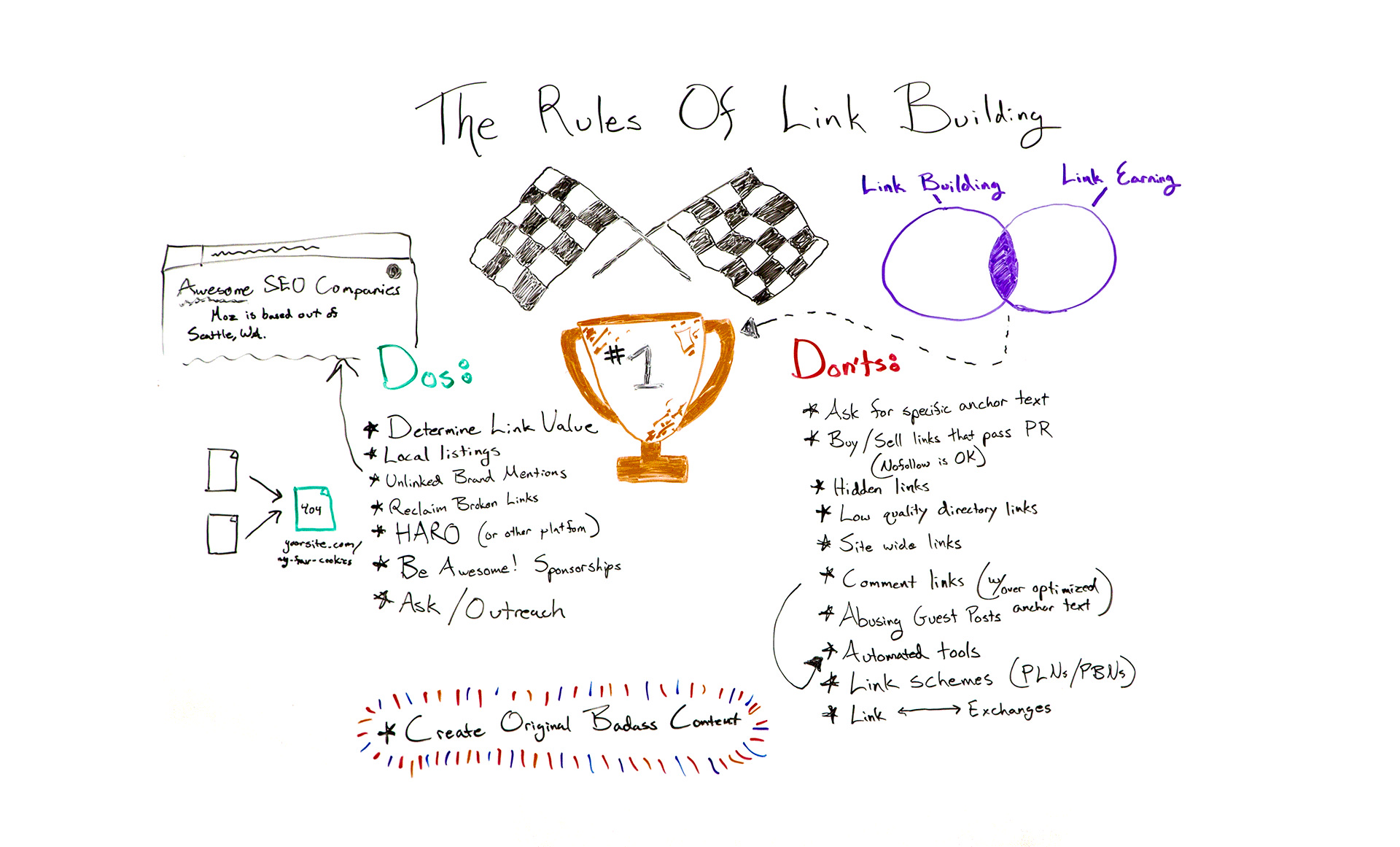
As you can see from the resulting whiteboard, there are way more “don’ts” than “dos” for link building.
In fact, link building as a practice can get very sneaky and slimy. (Link schemes? Hidden links? Abusing links?)
It’s time this term is retired in favor of one that connotes only positive linking practices.
3. Black Hat SEO
The term “black hat SEO” should be obsolete because it doesn’t work!
In the end, people trying to game Google and search engines will lose because:
- An algorithm update inevitably will weed out bad tactics, making sites that use them plummet in the rankings.
- Or the user experience will degrade so much that the temporary high rankings won’t matter.
4. White Hat SEO
There’s only one “good” SEO anymore, and that’s user-friendly, human-focused SEO.
It’s the only technique that leads to consistent, steady gains for everyone involved – your audience, your website, your brand, and your business.
Bottom line: There is no “white hat” or “black hat” – there’s only what works.
5. SEO Hacks
“Hacking” is a negative term.
“Hackers” are people who see it as their calling to violate boundaries and infiltrate personal data, not to mention cheat and exploit others.
“Hack” as a noun also has mainly negative connotations. This is what the dictionary says about it:
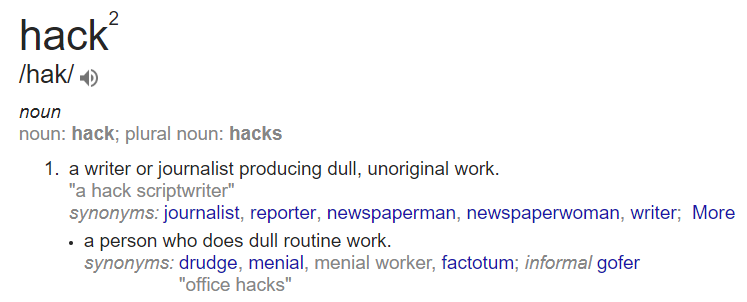

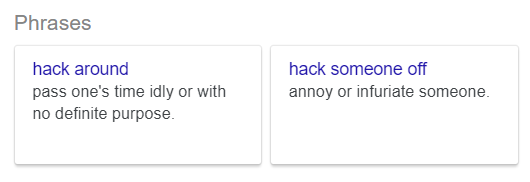
Why should we want to “hack” anything?
There are no SEO hacks – there are only tried, tested, and trusted techniques.
5 Hot Online Marketing Phrases to Invest In
Now that we have the overused SEO phrases out of the way, let’s turn over the coin.
What are some phrases that we should use more?
- Content marketing
- SEO copywriting
- AI (artificial intelligence)
- VR (virtual reality)
- Trust building
1. Content Marketing
No question about it: Content marketing is today’s marketing.
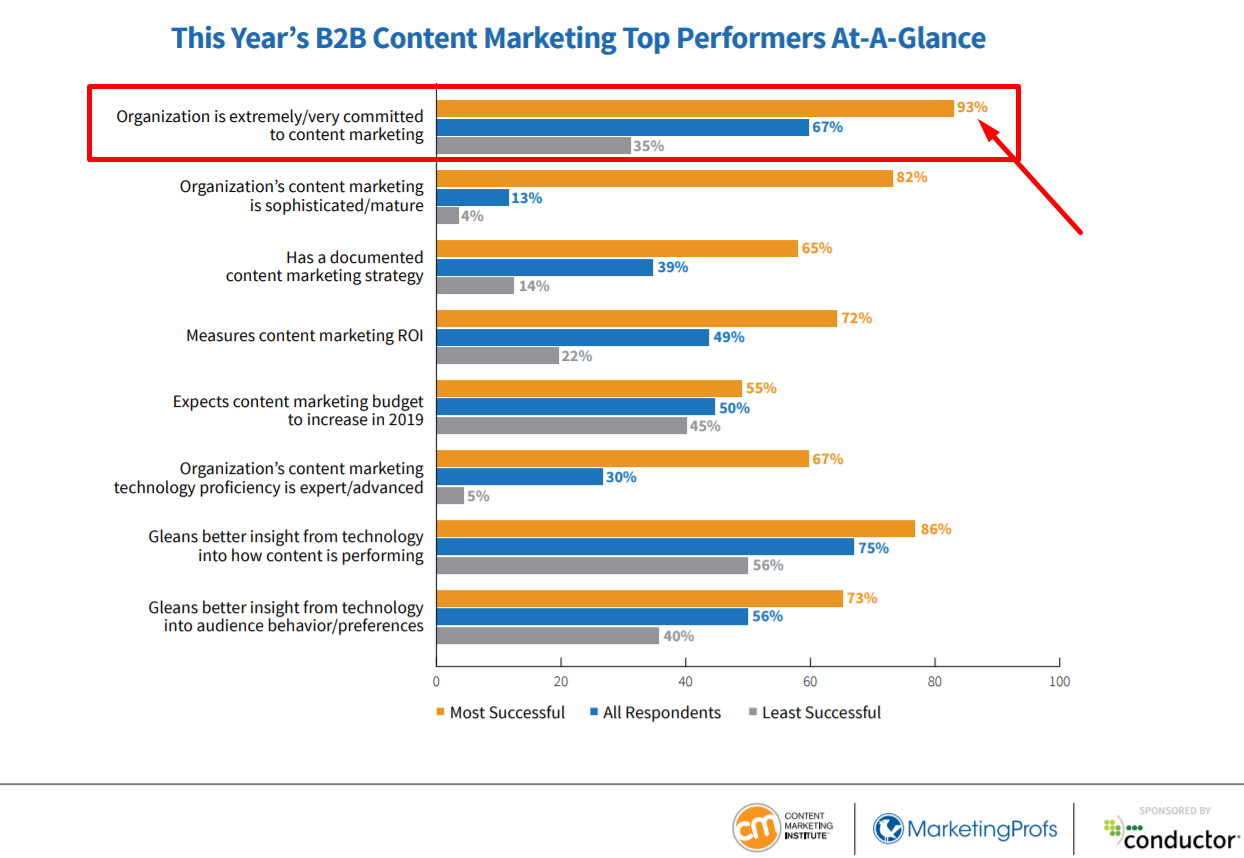
Overwhelmingly, organizations that commit themselves to mixing content marketing and SEO are top performers with measurable success (via CMI’s 2019 B2B report).
2. SEO Copywriting
Another hot phrase: SEO copywriting.
More than ever, content needs keywords that are inserted effortlessly, naturally, and intelligently.
To make those words flow together as smooth as silk, you need SEO copywriting skills.
3. AI (Artificial Intelligence)
AI is entering the conversation about digital marketing more frequently, every day.
From content robots to voice assistants/voice search, artificial intelligence is creeping in and changing the way we search (and optimize our content for search).
4. VR (Virtual Reality)
As for what’s next on the technology horizon, we might be looking at virtual reality merging with content.
Right now, you only need your mobile phone to get access to a VR experience, according to Claire McDermott for CMI.
She interviewed Susan Hill, the CEO and chief storyteller for a pioneering VR brand, who made a prediction for how the internet experience and virtual reality could merge:
“The internet is fast becoming a place you step inside. Just as you had to make your site responsive for mobile, so too will you have to make it responsive for VR.”
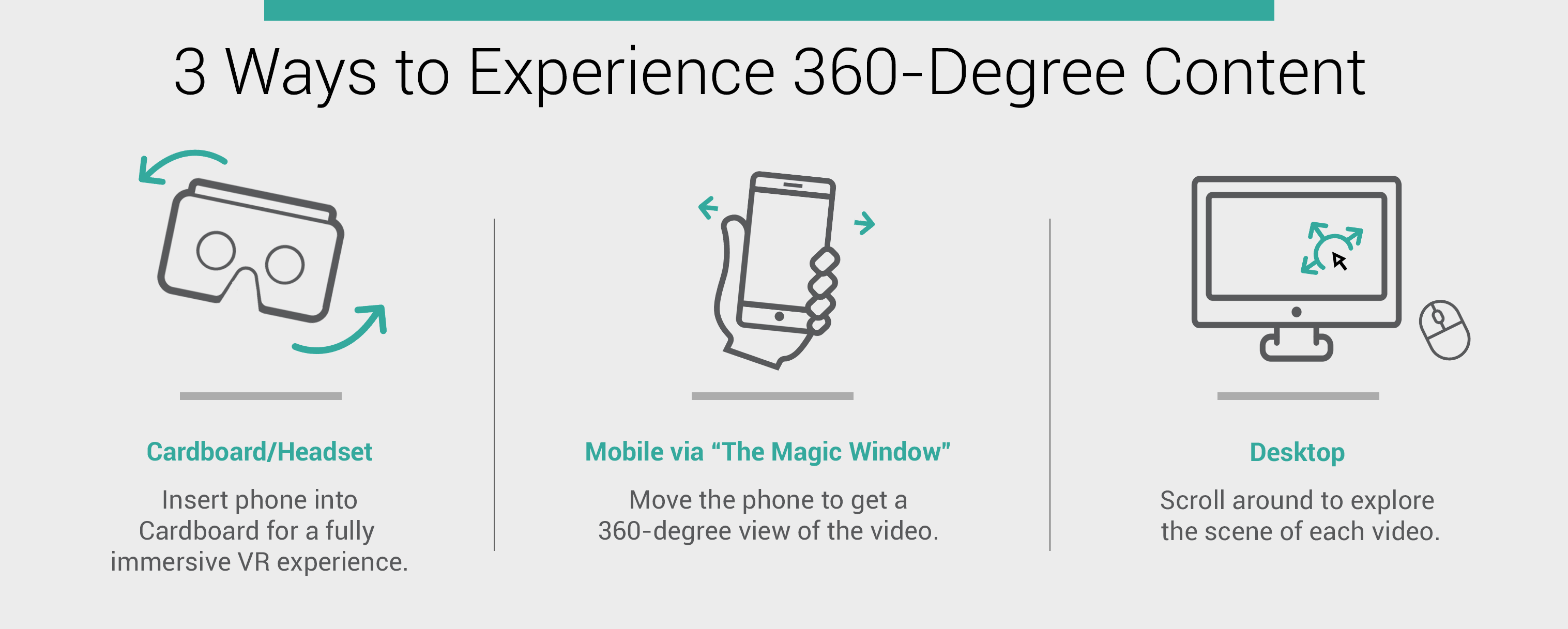
5. Trust Building
SEO and content marketing are continuing to trend toward a user and audience focus.
That means, instead of trying to get square with search engines, you should be trying to help your users.
Thus, trust building is a phrase that should be on everybody’s tongue.
Search Is Always Changing… And We Should, Too
Out with the old, in with the new.
We can’t be resistant to change if we want to be #1 for our audiences.
We should leave tired SEO phrases in the dust and adopt a new vocabulary that matches the present state of online marketing.
What words would you add to the “overused” list? Which ones do you think deserve to be part of SEO and content marketing conversations in 2019? Tell us in the comments!
More Resources:
- SEO 101: Learn the Basics of Search Engine Optimization
- 6 Old School SEO Habits That Never Grow Old
- 5 Bad SEO Content Tactics You Should Have Abandoned Already
Image Credits
In-post Image #1: Moz
In-post Images #2-3: Screenshots taken by author, December 2018
In-post Image #4: Think with Google





![AI Overviews: We Reverse-Engineered Them So You Don't Have To [+ What You Need To Do Next]](https://www.searchenginejournal.com/wp-content/uploads/2025/04/sidebar1x-455.png)